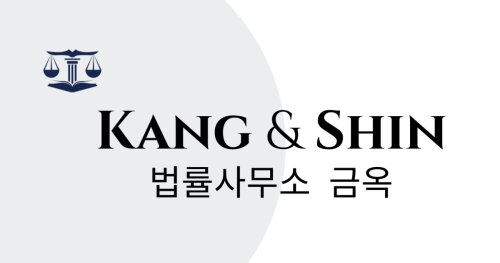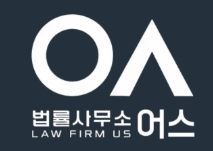Best Employment Rights Lawyers in South Korea
Share your needs with us, get contacted by law firms.
Free. Takes 2 min.
Or refine your search by selecting a city:
List of the best lawyers in South Korea
About Employment Rights Law in South Korea
Employment Rights in South Korea are governed by a combination of national labor laws and regulations. The framework ensures the protection of employees across various facets such as working conditions, wages, working hours, and protection against unfair dismissal. The Ministry of Employment and Labor oversees the enforcement of these rights, ensuring compliance from both employers and employees.
Why You May Need a Lawyer
There are several situations where someone might require legal assistance regarding Employment Rights in South Korea. Common scenarios include disputes over unfair dismissal, discrimination in the workplace, unpaid wages, infringement of contract terms, and violations of labor law provisions such as those concerning working hours and conditions. Legal help may also be necessary for negotiating employment contracts or understanding complex employment terminologies and policies.
Local Laws Overview
Key aspects of local laws relevant to Employment Rights in South Korea include:
- Labor Standards Act: This act establishes the minimum conditions, including working hours, recess, contracts, and wages.
- Minimum Wage Act: This governs the minimum wage applicable in South Korea, which is reviewed annually.
- Employment Contracts: Every employee must have a clear and concise employment contract, detailing rights and responsibilities.
- Dispute Resolutions: The law provides mechanisms such as labor tribunals for resolving workplace disputes.
- Anti-Discrimination Laws: These laws protect employees from discrimination based on gender, age, disability, or ethnic background.
Frequently Asked Questions
What is the legal minimum wage in South Korea?
As of 2023, the legal minimum wage in South Korea is set annually by the government. It is critical to check the latest information from the Ministry of Employment and Labor for accurate figures as they may change yearly.
What are the standard working hours?
The standard working hours in South Korea are 40 hours per week, with a maximum of 52 hours including overtime. Overtime work requires employee consent and additional pay.
Can an employer terminate an employee without notice?
Employers are generally required to provide notice or severance pay before terminating an employee unless the dismissal is due to serious misconduct or other justified reasons.
What are the rights related to maternity leave?
Female employees are entitled to 90 days of maternity leave, with 60 days paid by the employer and the remainder covered by employment insurance.
How do you resolve employment disputes in South Korea?
Employment disputes can be resolved through mediation, arbitration, or adjudication by the Labor Relations Commission or court proceedings.
Are foreign workers protected under South Korean employment laws?
Yes, foreign workers in South Korea enjoy the same legal protections under employment laws as local employees.
Is it legal for employers to ban union activities?
No, employees have the right to form and join trade unions, and employers cannot legally restrict union activities.
What constitutes unfair dismissal?
Unfair dismissal can include termination without cause, lack of proper procedure, or discrimination-related dismissals.
Do employees have the right to request flexible working arrangements?
Under certain conditions, employees can apply for changes to their work patterns. Employers must consider these requests but are not obligated to approve them unless legally bound.
How can I claim unpaid wages?
If employers fail to pay wages on time, employees can file a claim with the Labor Relations Commission or pursue legal action to recover unpaid wages.
Additional Resources
Various resources can aid individuals seeking more information or assistance with Employment Rights in South Korea:
- Ministry of Employment and Labor: Provides comprehensive and current information on labor policies and worker rights.
- Korea Labor Foundation: Offers consultation services and educational resources related to employment law.
- Local Legal Aid Centers: Offer free or low-cost legal support for employment-related issues.
- Trade Unions: Provide support and representation for workers facing employment rights challenges.
Next Steps
If you need legal assistance regarding Employment Rights in South Korea, consider the following steps:
- Conduct initial research to understand your rights and the specifics of your situation.
- Consider contacting a professional lawyer specialized in employment law to evaluate your case and provide legal counsel.
- Reach out to organizations like the Korea Legal Aid Corporation for assistance if you require support but have limited resources.
- Initiate proceedings in accordance with local dispute resolution mechanisms, if necessary.
Lawzana helps you find the best lawyers and law firms in South Korea through a curated and pre-screened list of qualified legal professionals. Our platform offers rankings and detailed profiles of attorneys and law firms, allowing you to compare based on practice areas, including Employment Rights, experience, and client feedback.
Each profile includes a description of the firm's areas of practice, client reviews, team members and partners, year of establishment, spoken languages, office locations, contact information, social media presence, and any published articles or resources. Most firms on our platform speak English and are experienced in both local and international legal matters.
Get a quote from top-rated law firms in South Korea — quickly, securely, and without unnecessary hassle.
Disclaimer:
The information provided on this page is for general informational purposes only and does not constitute legal advice. While we strive to ensure the accuracy and relevance of the content, legal information may change over time, and interpretations of the law can vary. You should always consult with a qualified legal professional for advice specific to your situation.
We disclaim all liability for actions taken or not taken based on the content of this page. If you believe any information is incorrect or outdated, please contact us, and we will review and update it where appropriate.
Browse employment rights law firms by city in South Korea
Refine your search by selecting a city.















